 Humans
Humans  Humans
Humans  Movies and TV
Movies and TV 10 Holiday Movies Released at Odd Times of the Year
 Politics
Politics 10 Countries Where Religion and Politics Are Inseparable
 Weird Stuff
Weird Stuff 10 Freaky Times When Famous Body Parts Were Stolen
 Miscellaneous
Miscellaneous 10 Interesting Things Manufacturers Stopped Making and Why
 Gaming
Gaming 10 Funny Tutorials in Games
 History
History 10 Fascinating Little-Known Events in Mexican History
 Facts
Facts 10 Things You May Not Know about the Statue of Liberty
 Movies and TV
Movies and TV 10 Movie Adaptions That Brought Popular Songs to Life
 Health
Health 10 Miraculous Advances Toward Curing Incurable Diseases
 Humans
Humans 10 One-of-a-kind People the World Said Goodbye to in July 2024
 Movies and TV
Movies and TV 10 Holiday Movies Released at Odd Times of the Year
 Politics
Politics 10 Countries Where Religion and Politics Are Inseparable
Who's Behind Listverse?

Jamie Frater
Head Editor
Jamie founded Listverse due to an insatiable desire to share fascinating, obscure, and bizarre facts. He has been a guest speaker on numerous national radio and television stations and is a five time published author.
More About Us Weird Stuff
Weird Stuff 10 Freaky Times When Famous Body Parts Were Stolen
 Miscellaneous
Miscellaneous 10 Interesting Things Manufacturers Stopped Making and Why
 Gaming
Gaming 10 Funny Tutorials in Games
 History
History 10 Fascinating Little-Known Events in Mexican History
 Facts
Facts 10 Things You May Not Know about the Statue of Liberty
 Movies and TV
Movies and TV 10 Movie Adaptions That Brought Popular Songs to Life
 Health
Health 10 Miraculous Advances Toward Curing Incurable Diseases
Top 10 Ways You Could Live Forever
Whether you’re petrified of dying, or would like to experience more life cycles, there are plenty of options to help you achieve eternal living. Here is a list of probably the only ways one can cheat death – biological, digital and spiritual.

Scientists have made some major achievements with cloning, including the asexual reproduction of sheep and cows. Humans with a desire to live forever are a natural(!) progression. Through reproductive cloning, a new multicellular organism is created, genetically identical to another. The body is the same, the mind is not. If there’s no need for an entirely new organism, just the organs can be reproduced and placed in the original body.

Discovered in the 1980’s, the telomerase enzyme has the reputation of being “the fountain of youth”. Chromosomes have caps of repetitive DNA called telomeres at their ends. Every time cells divide, their telomeres shorten, which eventually prompts them to stop dividing and die. If the enzyme is reawakened in these dying cells, normal human aging could be slowed, stopped or even reversed. Scientists have successfully studied the telomeres in decrepit mice, proving that mice which had the enzyme replaced became healthy once again.

In Greek mythology, Panacea was the goddess of universal remedy. Her name, transferred to the medical world, means a drug that can cure all disease. Alchemists were seeking this remedy in connection with the philosopher’s stone, in order to prolong life indefinitely. Life in a small pill or a glass of syrup might seem far- fetched, but so did a cure for the plague in Victorian-era England…

SENS stands for Strategies for Engineered Negligible Senescence. That’s a bit of a mouthful! The term negligible senescence was first used in connection with lobsters and hydras to reflect the fact that these creatures don’t show any signs of aging. SENS biogerontologists want to eliminate all diseases caused by aging. What they are trying to do is not like a panacea, curing all aging for everybody; scientists will instead develop multiple therapies targeting distinct types of age-related damage, resulting in personalized treatment.
To encourage the process of finding such treatments, the Methuselah Foundation offers cash prizes to researchers who break records in mouse longevity. The current record is 1819 days—not bad for an animal with a regular life expectancy of less than a year.

This is a more spiritual approach to immortality and it refers to reincarnation or the soul jumping from body to body, in this way not ceasing to exist. According to Hinduism, people live many lives, and each of these lives is influenced by the actions in the previous one. If they live well, karma improves and makes the next life cycle better. The key here is that the soul stays the same, it just travels between different forms. This belief was also supported by historic figures such as Pythagoras, Plato and Socrates.
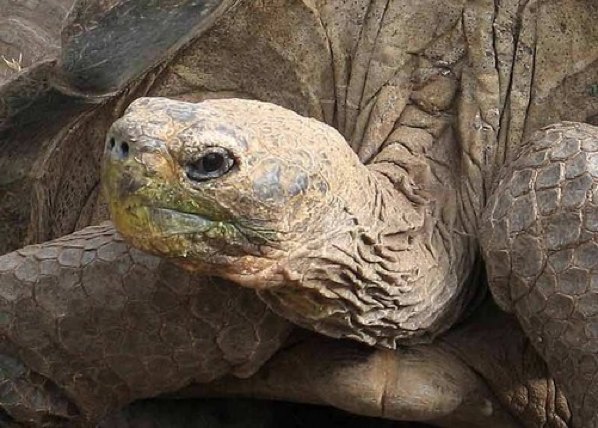
Marios Kyriazis, a biogerontologist, believes that immortality is an inevitable consequence of evolution. The human brain will become so complex as to be capable of sustaining the body for an indefinite time. The aging process will then be slowed down to accommodate the new brain and eventually stop when the body is fully-grown.
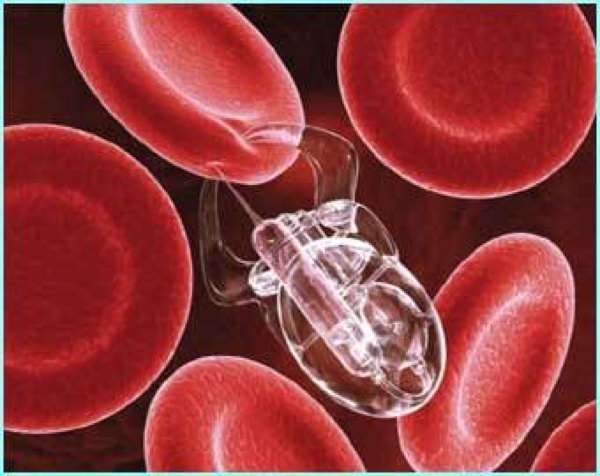
Nanobots are microscopic machines designed for building and fixing your body. Imagine millions of these crawling inside you and fixing all “mortal” issues your body might experience. This isn’t just in theory, though. Scientists have successfully used nanobots to repair optic nerves in blind hamsters by building a custom synthetic molecule that, when injected, arranges itself into a nanofiber to repair the nerve. What comes next? Well, scientists want to send the little bots on a cancer cell killing spree!
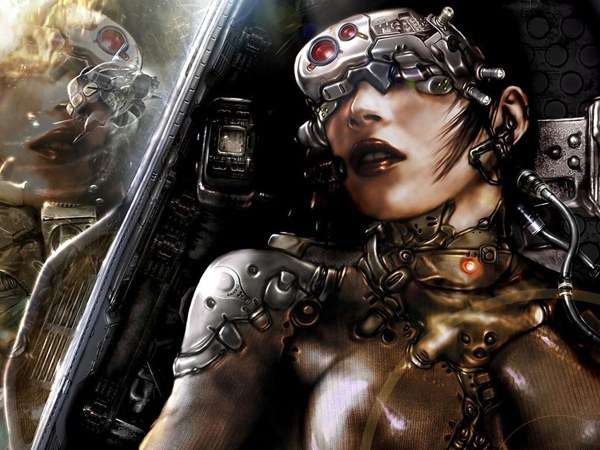
Science has already succeeded in creating prosthetics that look real and can outshine even the real thing – witness Oscar Pistorius’ extremely fast legs. So why not go a step further? Instead of biological organ transplants, humans will be given mechanical organs, transforming the mere mortal into a cyborg. A special machine will pump our hearts and a flamethrower could be attached to our left arm. In the end, we will possess the strength of the Terminator and pretty much live forever. No biggie.
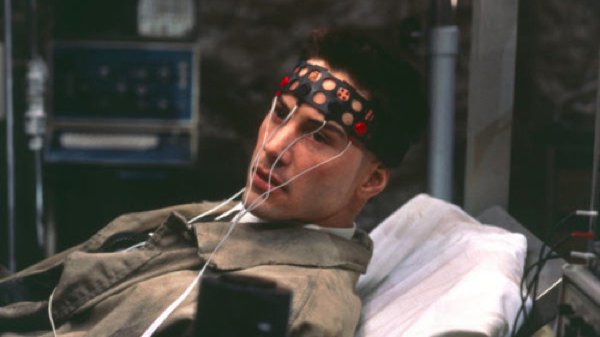
Also known as ‘brain emulation’, mind-to-computer uploading stays true to its name: it uploads your brain – along with thoughts, memories, and so on – on to a computer. That means creating a digital you, living in a computer. However, it doesn’t stop here: if a person’s mind can be successfully uploaded, that means it can also be downloaded – into a robot. The human brain is transformed into a digital brain (with a conscious mind and all previous human characteristics) and attached to a robot’s body. That definitely means immortality and it’s not as far off into the future as you might think. Several animal brains are being researched and have been partly simulated, such as that of a rodent.
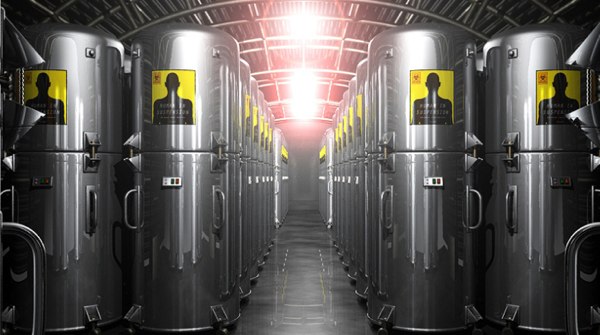
First and foremost, cryonics is a science! It involves refrigerating the body in liquid nitrogen, after replacing the blood with a cryo-protectant fluid to prevent ice from forming in the cells as the temperature is lowered to minus 196 C. The body is then held upside down (in order for the head to have the lowest temperature), in a giant steel container, which can hold up to 4 people.
The strange part doesn’t stop here: not only entire bodies are stored in this way, but also heads! The brain is like a hard-disk and it could eventually be connected to another body. The downside: we don’t have the technology yet to revive the bodies. However, there are over 250 people preserved in this way and 1,000 who signed up for it and if you want to join them, be prepared for a price tag of $200,000 for a whole-body preservation.








